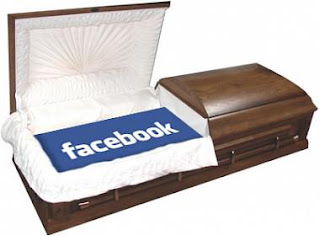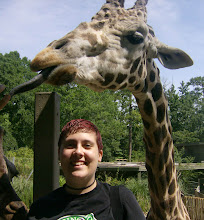 Which one wins? I've compiled a list of some basic and extended stats. Then choose which one is pro and which one is con. Two websites will enter... and both will leave! But we'll still like one better than the other. =P
Which one wins? I've compiled a list of some basic and extended stats. Then choose which one is pro and which one is con. Two websites will enter... and both will leave! But we'll still like one better than the other. =P
The Basics
Users:
Myspace: 87 million. Facebook: 55 million
Year of Creation:
Myspace: 2003. Facebook: 2004
Money:
Myspace: signed a $900 million deal with Google. Facebook: Google bought a 1.6% share for $240 million
Pro: Myspace
The Profiles:
Blurbs:
Myspace: About Me, Who I'd Like to Meet, Interests, Music. Facebook: About Me, Personal Info, Contact Info, Educational Info
General Look:
Myspace: Able to be edited with html. Possiblities= endless. Facebook: set colors and shape, rearranging and editing are possible.
How Personal?
Myspace: Gender, State, Hometown. Facebook: home address and phone number
Top Friends?:
Myspace: Top 4, 8, 12, up to 24 may be displayed as part of the basic profile. Facebook: Third party application must be added in order to display any kind of top friends
Pictures:
Myspace: Albums now possible, tagging in the works. Facebook: Albums, tagging.
Feed:
Myspace: small chart of friend updates on homepage. Facebook: Mammoth feed on homepage, miniature feed on every profile page for that specific person.
Pro: Myspace
Communication:
Messages:
Myspace: similar to email. Private, but multiple messages stack up. Facebook: Private. Multiple messages with the same person are displayed as a single thread.
Preferred Mass Communication:
Myspace: Bulletins. Mostly surveys, questions, updates, etc. Pictures and videos able to be embedded. Displayed on sidebar of homepage. Facebook: Notes. Tagging available, as well as easy embedding of pictures and videos. Show up on mini-feed, Feed, and profile
Comments on Profile:
Myspace: Comments displayed on usual profile. Comments may be deleted and censored. Facebook: Comments displayed on a Wall. Features include deleting and wall-to-wall conversations.
Etc?:
Myspace: Myspace IM if applicable. Facebook: a 'poke' feature is equipped on every profile. Allows users to poke, get the attention of, other users. Also allows one to access the full or limited profile of a non-friend (if they poke back).
Pro: Facebook
The Extras:
Applications:
Myspace: HTML can be embedded in profiles. Videos and quiz results among top HTML added. Facebook: Third-party applications made available. Examples include Top Friends and Free Gifts
Groups:
Myspace: Not very popular, most users only have 5 or 6 if any. Hard to access. Facebook: Up to 50 groups, easily accessible
Events:
Myspace: None. (post a bulletin if you have to?) Facebook: Event application on a basic profile allows users to invite one another and RSVP
Status:
Myspace: newly added. displayed on profile (somewhere), never expires, also includes mood. Facebook: displayed on profile, mini-feed, and Feed. expires weekly.
Etc?:
Myspace: Extra features include Myspace IM, Myspace TV, Myspace mobile and Myspace News. Facebook: Sponsored groups and third party applications.
Pro: Facebook
Other:
Professionalism:
Myspace: considered much more personal. Facebook: can be used by professionals, with caution.
Age Groups:
Myspace: primary users aged 14-18. Facebook: primary users aged 18 -25
Privacy:
Myspace: users under 18 have their profiles automatically set to private. One must know the last name or email of user to add. Profile pictures always displayed. Facebook: all full profiles are inaccessible to non-friends. One simply adds a friend, and it may either be accepted or declined. Profile pictures and profiles can optionally be set to private.
Legality:
Myspace: Quite a few legal hang-ups, most of which involve sexual exploitation of minors. Facebook: Ongoing lawsuit involving illegal use of concept and source code of rival site, ConnectU.
Pro: Facebook
Winner is:
FACEBOOK!
Now, that's not saying that Facebook is ultimately immaculate and Myspace is the root of all evil. They both have their drawbacks and benefits. But as of this entry, Facebook rules! Oh, and below is a chart of how the users of both sites are growing. See a pattern? I think it reinforces my ruling.
.jpg)
 Afterworld is an online TV series that started a few months ago. At first when it came out I was HYPED. I thought it would be perfect to report on for this class. The basic plot is:
Afterworld is an online TV series that started a few months ago. At first when it came out I was HYPED. I thought it would be perfect to report on for this class. The basic plot is:












.jpg)




































